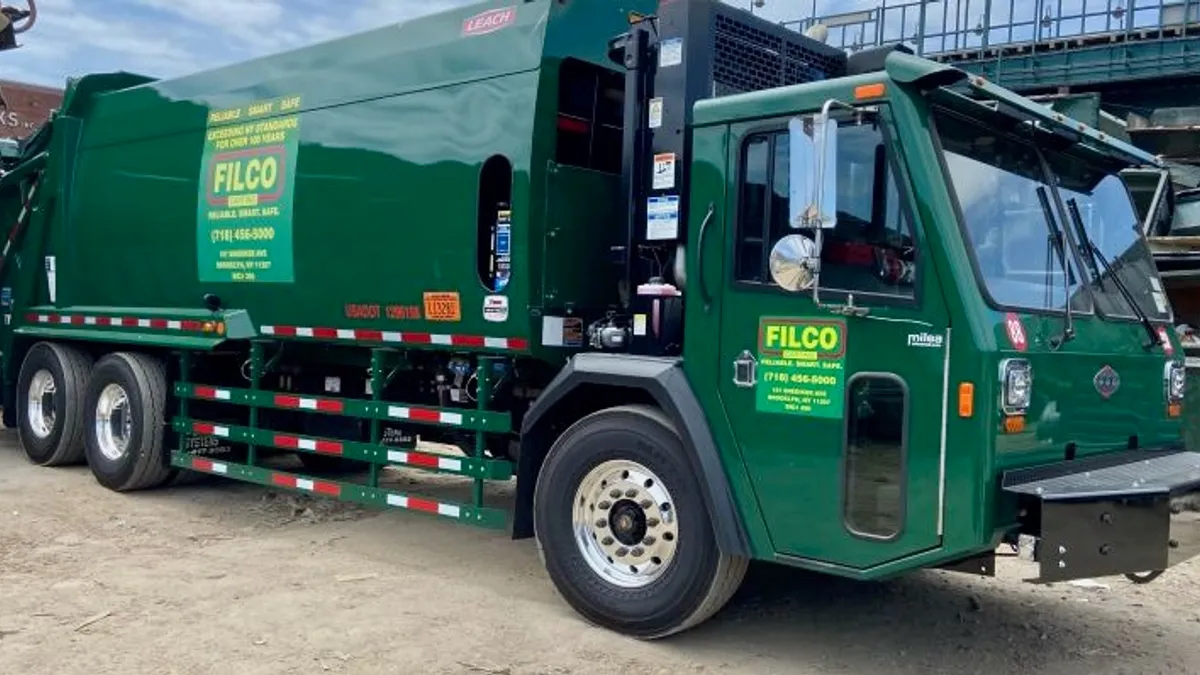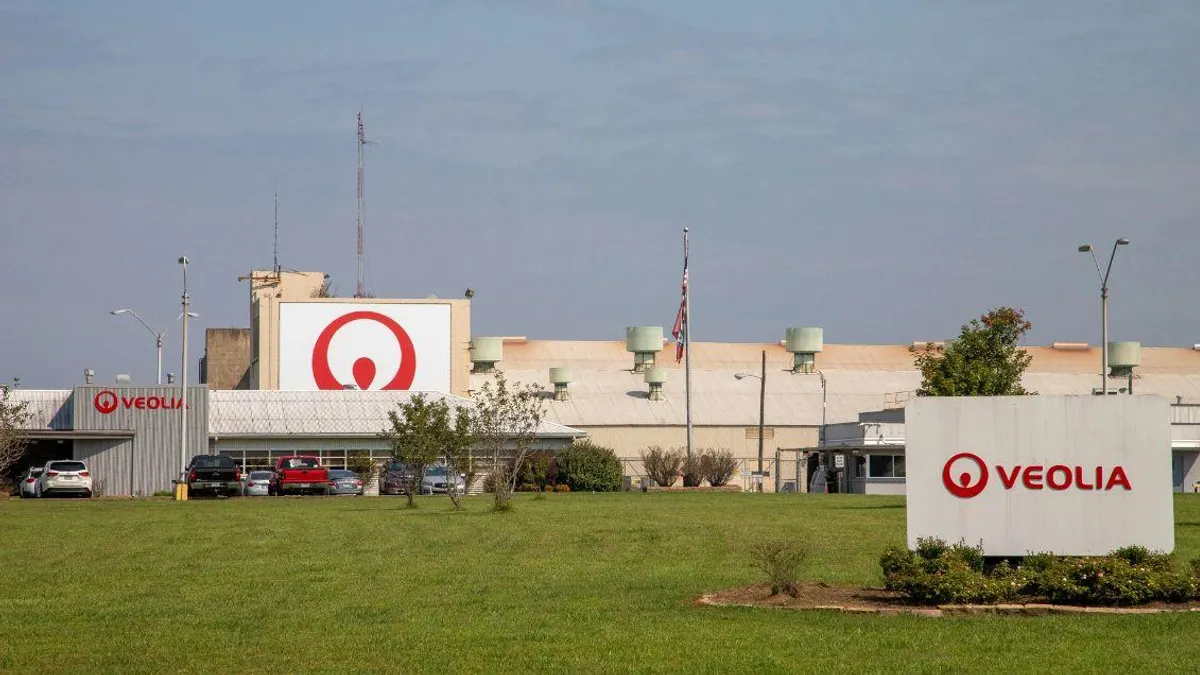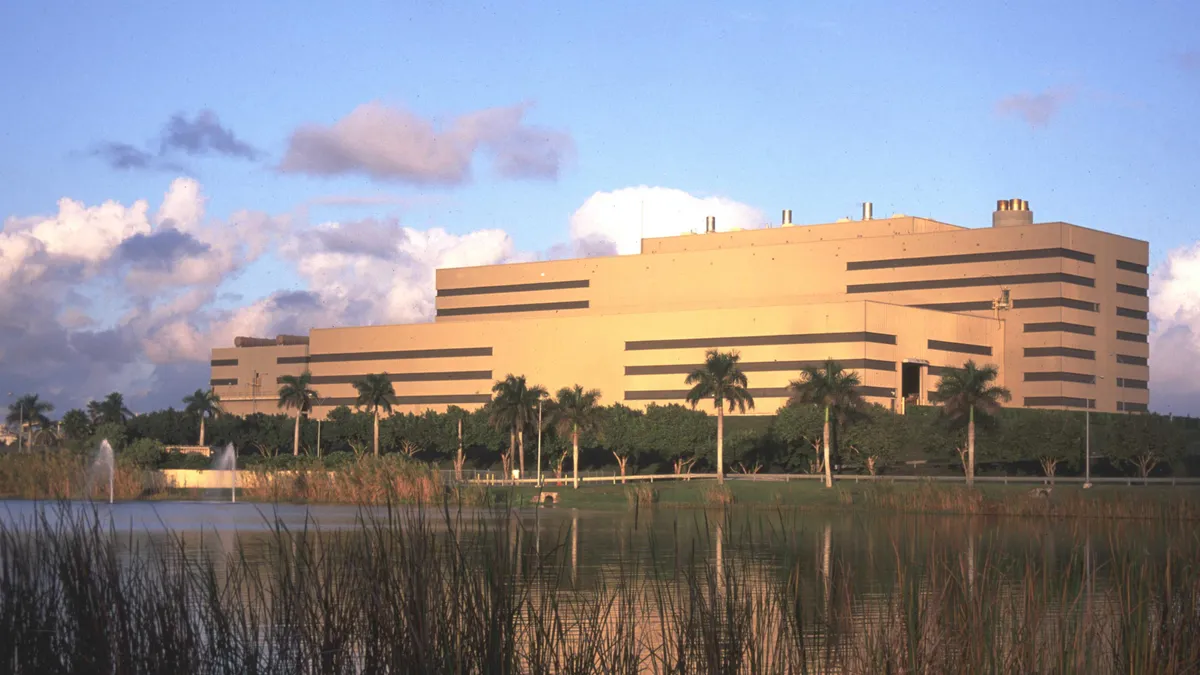In a year full of high-profile M&A activity, major purchases and private equity-backed deals have become increasingly common. Waste Pro is taking a different path, continuing to do smaller transactions as part of a steady ascent toward becoming one of the country's largest waste companies.
The Florida-based private company, which recently celebrated its 20th anniversary, now expects to surpass $900 million in revenue next year. Waste Pro's current footprint covers 10 states and has continued to densify with multiple recent deals.
In recent months, the company took over management of the Pine Belt Regional Landfill in Mississippi, along with the local waste authority's three transfer stations, as well as C&D operations at the Riverside Recycling & Disposal landfill in Louisiana. Its latest acquisitions include Coastal Disposal and Mr. Trash in Florida; plus various business lines from Maudlin Waste and Metro Container in Georgia, and RES in Mississippi.
While the company has experienced turbulence with some its municipal relationships this year, due to labor challenges and pandemic disruptions, it touts an estimated 300 exclusive contracts or franchises around the region. This includes recent agreements in Alabama, Florida and Louisiana. A new contract in Collier County, Florida, is considered especially strategic, as it builds out the company's presence on the state's western coast below Tampa.
Waste Dive recently caught up with CEO Sean Jennings and Chief Operating Officer Keith Banasiak to discuss what's next for Waste Pro's M&A activity, workforce strategy and more.
This conversation has been edited for length and clarity.
WASTE DIVE: A lot of family companies are moving on and selling, but that's not the case for Waste Pro. How do you make the decision to keep growing when others are closing up shop?
SEAN JENNINGS: We still have a lot of work to do, and there's still so much opportunity, especially where we are throughout the Southeast. There's still a lot more that we know can be accomplished. This isn't going to be the only good time to sell if you want to sell. So I think, for some people, that's not the only factor, just because times are good right now. There's probably other things going on that are getting them to a point where they have no other option but to sell. We're excited for what we see coming, especially on the other end of this pandemic.
KEITH BANASIAK: I think one of the things that attracts people to Waste Pro is the fact that we have such a strong municipal contract base, and that really gives a great foundation for investment. Some of those smaller companies really get strangled with private equity. We're not that way. We're well-funded, and we can weather the storm. So this is a time for us to really retool, get stronger, continue to densify and move forward.
When we talked last year, Keith, you outlined a potential M&A pipeline of $100 million in revenue. Now that you've closed on several deals and won new contracts this year, how big is the opportunity today?
BANASIAK: We're closing in on $900 million [in revenue] for next year, and that's just with what we have now. So there's more opportunity out there moving forward. I don't know that it will be a billion next year, but it won't be too far down the pipeline. One thing about Waste Pro being a private company is we're working to buy companies that really fit our model and that work well with us and are in areas [where] we want to be. It has to be a Waste Pro-type company. So when we think about that, we're not building revenue because we want to build and sell. We're after what fits the model, and we're working to utilize those opportunities with the right hauler.
JENNINGS: We had a list that we were working on as far as targets, pre-pandemic, and it's interesting looking at that now that we're hopefully on the tail end of this. There's a lot of businesses that have been acquired, but there's a lot of new owners, too, and a lot of new companies that are in growth mode. So the candidates are always going to be out there. People say, "well, there's going to be continual consolidation." There's always new companies.
As far as acquisitions, really, our strategy hasn't changed. We're not just blindly trying to piece together a series of acquisitions. We're trying to find people who match well with our culture. So we're picking and choosing wisely.
No one has been immune to labor challenges recently, including Waste Pro. Big picture, how are things looking for you in that area now? Do you feel like you're catching up on some of the issues with hiring and service levels?
BANASIAK: We're catching up. All markets are difficult, there's not one market that's the same. Some markets really weren't dramatically affected. We sat down and looked at our footprint, why certain markets were different than others, and there's various reasons. But I would say, overall, once the government stopped now with the stimulus and extra unemployment benefits, [hiring is improving].
We're fighting with not only other haulers, but — in a large growth market like ours — we're [competing] with dump trucks, we're fighting with cement truck drivers. These guys can, theoretically work for Amazon driving a truck and not have to get out and handle waste. So these challenges are going to be here, and — we hit on it earlier — only the strong are going to survive this time period, and I think Waste Pro is poised to do that.
We've got a real good team. We keep laser-focused, and we've had to increase our labor costs. So not only did we do retention bonuses, we did hiring bonuses. In some cases, we're up to $4,000, $5,000 [bonuses] for certain skilled employees. I think our wage increases hover somewhere around 20%, year over year, and that's a substantial number given the fact that Waste Pro has so many franchise and municipal-based agreements.
It's difficult to go back to [municipalities] and try to get those increases, which we're doing. It takes a little more time than when you have an open market situation, where you can just go and get price increases right away. So those increases probably have been a long time coming. These guys work hard every day. They have a tough job. Again, we're in the Southeast. We're along the coastline, from Mississippi and Louisiana all the way down to Florida and down to Miami. It's hot work.
JENNINGS: The Southeast has experienced tremendous growth. I think that of the Southeast, we have more exposure in Florida than probably any of our peers. So I feel like we've experienced the labor bottleneck as much as anybody. We're just looking forward to getting a lot of our municipal contracts repriced, once we can get out of the pandemic.
Do you have upcoming opportunities to do that naturally, or is this a conversation that needs to happen off-cycle?
BANASIAK: Most of the increases hit in this month of October, and they were typically put in [the contracts terms] well in advance thereof. We've had to have those hard discussions with municipalities, that the [Consumer Price Index] language that's in the contract is not going to be able to cover the expenses that we've had to endure. We want to maintain a level of service. They have to understand that in order to maintain that level of service, we have to pay for the for the people to do it.
What are you hearing from them in terms of price sensitivity? Recycling has gotten more expensive, and everything with the pandemic has been expensive, but then there's also federal relief money coming in. How are municipal customers responding?
BANASIAK: It's very challenging. I can't tell you how many municipalities look us in the face and say, "you signed this contract, this is what you have to adhere to. We don't want to hear about it." So it's difficult, and the more education that we can do, the better chance we have to get those increases that we deserve. And they know it.
There's always a supply-chain issue on TV, and most often you'll always hear about a truck driver shortage. I stood before a city council earlier this year having the same discussion, [and I said] a truck driver is a much easier person to get than a sanitation worker. It's a big difference.
You can't take an over-the-road driver and put him successfully behind the wheel of a garbage truck. It doesn't work. They don't want to get out. They're not as ambitious. Their age is somewhat older, and they don't want the physical work. Everything's changing. We're finding, in some markets, guys want to work four-day workweeks. They want the 40 to 45 hours in four days.
Sean, being a Millennial, understands that, and he really relates to it. I'm older-school, and I come from a background where my father was a steelworker, and you went to work every day, you pounded out the hours necessary. But Sean brought light and said, "Hey, listen, we may be fooling ourselves by trying to force people into working much longer and harder than what they really want to."
There's markets where I think we really need to look at that and see if it benefits us and helps us out. A lot of things play in with that. Safety plays into it. Vehicle maintenance plays into it. So the days of taking a truck and running it as hard as you can, for as many hours as you can, the math doesn't work anymore — especially with the price of vehicles and the shortage of technicians, shortage of drivers.
JENNINGS: I think that this has forced us to see where we have with municipalities a one-way relationship or a true partnership. Because we're at the point where it doesn't matter if it's a municipality or an open-market customer, this is what it's going to cost if you want quality service. And if not, we'll go somewhere else. So I think that we found that out throughout the pandemic.
BANASIAK: We're still looking at all of our agreements, and there's some of them that we've almost just basically told the customer, "You know what, it's not working. You're welcome to put this out to bid because it's not going to bother us." I can tell you, going forward, in all of our agreements that we have now, we're really looking at the language in regards to pandemics, uncontrollable circumstances. You'll see us no-bid a contract quicker than anybody else on an agreement where there's not language in there that protects us in situations that we're in today.
How should the industry think about your expansion goals over the next five to 10 years?
JENNINGS: Five or 10 years from now we'll be on the same path. Probably just more filled in within our existing footprint, probably a little bit further west and avoiding the cold weather as usual.
BANASIAK: If you look at where we're at, obviously we're very dense in Florida, and Florida works well for us. We know the Florida market better than anybody.
That's our foundation. So any opportunity that comes along in Florida that we can capitalize on, that makes sense. And going back to Sean's comment earlier, especially if there's a municipal agreement in it — it's got to be a municipal partner, it's got to be a two-way street, not a one-way road — we'll look at those all day long. Collier County was an example.
When you look at where we are outside of Florida, we've get three locations in Atlanta. Atlanta is a huge market. We look at where we're at in North Carolina, we've got four locations — the farthest being Asheville. There's a lot to fill in around that Charlotte market area. So when you talk about growth [over five to 10 years], I see that, I see Nashville, I see the Charlotte and Atlanta markets. We're doing well in Mississippi, as far as getting some density there. And along the coastline of Louisiana.
With the acquisition of the Riverside landfill [in Louisiana], I think we're poised to be in a much better spot in New Orleans than we have been. And of course our Baton Rouge facility, which is rather new to us. There's nothing but growth to the east and west of there, and to the north.
So really, if you look at us and our five- to 10-year plan, we're going to be building around those and just keep growing. You may not hear that Waste Pro started in Texas — I'm not saying that we wouldn't — but you're more likely to hear that Waste Pro is going to densify the areas that they're in.
Could you ever go public? Or is the plan to likely stay private in your current form?
BANASIAK: We're funded well, and we haven't really found the need to consider that. We get private equity knocking on the door on a weekly basis, wanting to get a piece of the pie.
We've got a good team behind us and a good bank consortium that we're working with. So we're very happy with our arrangement right now. If we're going to go and take on something much larger, in the $100 million to $300 million range, it might be a different story where we need different funding. But right now, we're fine.
JENNINGS: That's the polar opposite of what we have right now, where we can run our business exactly as we choose to. We have zero outside [ownership]. There was a time where access to capital wasn't what it is today, and that was a choice that you had to make. We're not there.



















